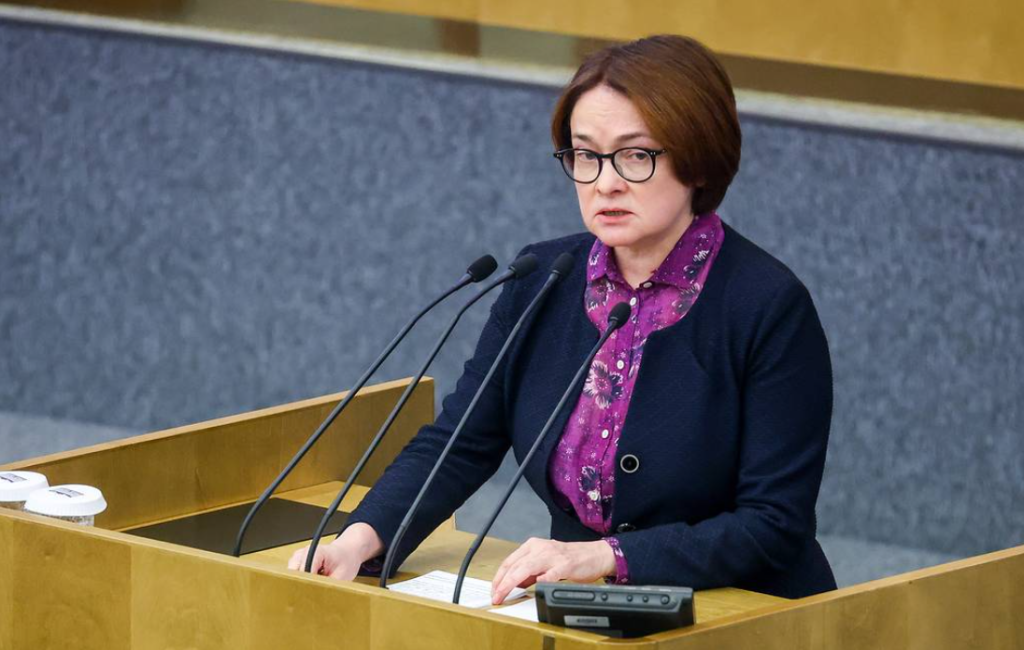Key Statements in Duma on Russian Economy by Bank of Russia Governor Elvira Nabiullina

Bank of Russia Governor Elvira Nabiullina © Sergey Fadeichev/TASS
by TASS [10-30-2025].
According to the regulator, the Russian government will be able to contain rising gasoline prices without accelerating inflation, and will also ensure the availability of market mortgages while maintaining a steady decline in inflation.
MOSCOW, October 30. /TASS/. The Bank of Russia's monetary policy is aimed at preventing the Russian economy from returning to the state of the 1990s, Bank of Russia Governor Elvira Nabiullina said at a plenary session of the State Duma, the lower house of parliament.
The regulator sees the first signs of an easing of the labor market, while the ruble is becoming a more attractive store of value for individuals and businesses.
According to the regulator, the Russian government will be able to contain rising gasoline prices without accelerating inflation, and will also ensure the availability of market mortgages while maintaining a steady decline in inflation.
TASS has collected key statements of the Governor of the Bank of Russia.
On the key rate
- The Bank of Russia sees room to lower the key rate next year.
On the absence of a recession and declining inflation in Russia
- There are no signs of a recession, even close, in the national economy.
"I would strongly urge everyone to take such statements seriously. Because during a recession, two things are inevitable: a sharp rise in unemployment, followed by a decline in real wages. We are not experiencing either of these at the moment," Nabiullina said.
- Low and stable inflation has a much better effect on the ruble exchange rate than any administrative measures.
- The ruble is becoming a more attractive store of value.
"Another manifestation of the high key rate is the ruble's strengthening in the first half of this year." <…> [The ruble] as a savings vehicle is becoming more attractive for people and businesses than saving in foreign currency," the regulator’s Governor said.
- Inflation will accelerate briefly in early 2026, but this doesn't negate the key rate cut.
- The Central Bank's monetary policy is aimed at preventing the Russian economy from returning to the state of the 1990s.
"We went through it in the 1990s. You remember very well what happened with economic growth, with investments, and whether there was long-term ruble lending back then. <…> The monetary policy we are pursuing during periods of overheated demand, when we have an imbalance between supply and demand, is aimed at preventing us from ending up there again," Nabiullina explained.
- The path to low inflation in Russia has been "long and indirect."
"But my colleagues and I are absolutely certain that it is necessary for social stability, financial stability, and economic development," the regulator’s chief stressed.
- Low inflation is fundamentally important for "people with low incomes."
"For people who don't have income from savings or bank deposits, it's fundamentally important that prices in stores not rise," Nabiullina said.
- The Bank of Russia assumes that tight monetary policy is a "temporary phenomenon."
On preferential loans and alternative measures
- Banks have issued a total of 78 trillion rubles in loans to Russian businesses.
"Thanks to this, companies are able to cover their financing needs beyond what their own profits and bank loans can provide."
- Loans remain expensive for businesses, but "It's temporary."
- Low-interest lending to low-profit and unprofitable companies is a "route to nowhere."
- State support should also extend to the placement of shares by companies on the stock market.
On cryptocurrency
- Cryptocurrency cannot be used for settlements within Russia, but the country "has an experimental legal regime that allows its use in foreign trade settlements."
- Stablecoins can already be issued in Russia.
On affordable housing
- The Central Bank has recorded a slowdown in the growth rate of housing prices under construction, "this trend needs to be consolidated."
- Market mortgages will become affordable after a sustained decline in inflation, because "real housing affordability emerges when people's incomes grow faster than the cost of square meters."
On containing gasoline prices
- "We believe that the government will be able to contain further increases in gasoline prices, and they will not cause inflation to continue to accelerate," Nabiullina said.
On labor market situation
- "The first signs of an easing situation in the labor market have now appeared, which are truly encouraging, but they are still just the beginning," she stated.